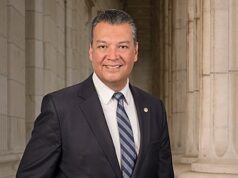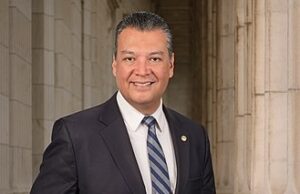Consumer, Civil Rights Advocates to CFPB: Don’t Water Down Overdraft Fee “Opt In” Rule
WASHINGTON, D.C. – (RealEstateRama) – The Center for Responsible Lending (CRL), National Consumer Law Center (on behalf of its low-income clients), Americans for Financial Reform Education Fund, National Association for the Advancement of Colored People (NAACP), National Coalition for Asian Pacific American Community Development (National CAPACD), and National Fair Housing Alliance (NFHA) late yesterday submitted a letter to Consumer Financial Protection Bureau (CFPB) Director Kathy Kraninger urging her not to weaken the Federal Reserve Board’s 2009 overdraft “opt in” rule.
Under the Rule, which went into effect in 2010, financial institutions must not assess a fee or charge on a consumer’s account for paying an ATM or one-time debit card overdraft transaction, unless the institution, among other things, obtains the consumer’s affirmative consent, or opt-in, to the institution’s payment of overdrafts for these transactions. Previously, some banks had automatically enrolled borrowers in overdraft coverage for these transactions without their knowledge and it became clear that many borrowers did not want the high-cost fees that came with the practice. The CFPB became responsible for this rule in 2011 and is now reviewing it under the Regulatory Flexibility Act (RFA).
In their letter, the advocates wrote: “The considerations prescribed by the RFA strongly support strengthening protections against overdraft fees on debit card and ATM transactions. More broadly, comprehensive reform of unfair and abusive overdraft practices is badly needed. … Financial institutions combine a number of unfair and abusive practices in order to impose high, repeat overdraft fees on their customers. These fees create hardships from which many consumers do not recover. Comprehensive, sound regulatory policy around overdraft fees—rules that prohibit unfair and abusive practices in overdraft programs—can restore health to the market, make space for far better products, and save families from being washed away by the very institutions that hold themselves out as vehicles for those families’ financial security.”
Prior to Director Kraninger’s call to review the overdraft “opt-in” rule, her leadership team announced last year that it will halt its overall rulemaking plan to address bank overdraft fee abuses. The CFPB had studied overdraft fees since 2012 and the results have underscored that overdraft programs use unfair and abusive practices to exploit financially vulnerable customers.Research has also shown that bank overdraft programs disproportionately harm lower income communities and communities of color. Bank overdraft practices drive many low-income people out of the banking system altogether.
In their letter to Director Kraninger, the advocates also urged her to have the CFPB take a comprehensive approach to further address overdraft fee abuses. “We urge CFPB to subject overdrafts on all transactions to credit protections, including permitting repayment in affordable installments. This is particularly warranted for overdraft fees that exceed those that may be occasional and inadvertent—fees exceeding more than one per month and six per year,” the advocates said.
A larger coalition of more than 20 organizations also sent a letter to Director Kraninger stressing that the agency shouldn’t water down the current rule.
In 2018, CRL released Unfair Market: The State of High-Cost Overdraft Practices in 2017, a report analyzing the overdraft fee revenue generated by banks and the overdraft practices of the 10 largest banks across the United States. According to Federal Deposit Insurance Corporation (FDIC) data, banks with over $1 billion in assets collected more than $11.45 billion in overdraft and non-sufficient funds (NSF) in 2017.
In 2017, before Mick Mulvaney and Kraninger took control of the bureau, the CFPB released a study that exposed the extent to which large banks’ abusive overdraft fees drain working families’ checking accounts. The study found that nearly 80% of bank overdraft and NSF fees are borne by only 8% of account holders, who incur ten or more fees per year, with many of those customers paying far more. For one group of hard hit consumers, the median number of overdraft fees was 37, nearly $1,300 annually. The study also confirmed that overdraft fees on debit cards can lead to extremely high cumulative fees for consumers.
Financial institutions typically charge an overdraft fee when a customer’s account lacks sufficient funds to cover a transaction, but the institution chooses to pay the transaction anyway. Overdraft fees can be triggered by debit card transactions, ATM withdrawals, electronic bill payments, and paper checks. Some institutions do not charge overdraft fees on debit card or ATM withdrawals—simply declining the transaction at no cost when the account lacks sufficient funds—but many banks do. The bank typically charges a fee for each individual overdraft transaction it pays, even when the customer overdrafts by a small amount. The institution repays itself for the overdrawn transaction, as well as the high fees(s), directly from the customer’s next deposit, in effect “jumping the line” ahead of any other planned transactions or debts the consumer has.
###














